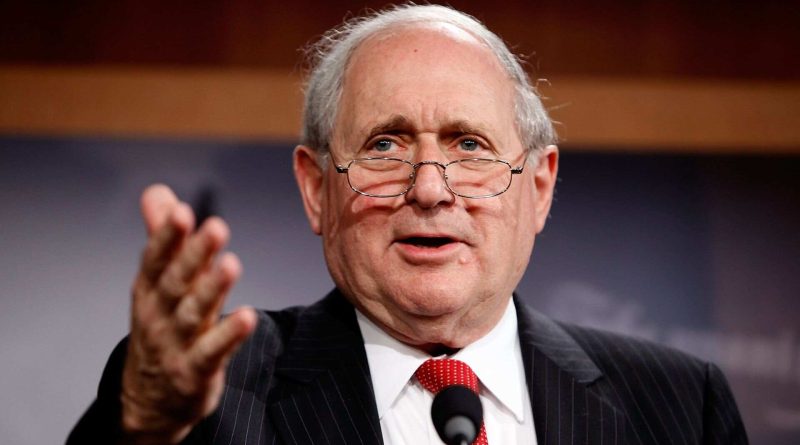Carl Levin, Michigan’s longest-serving U.S. senator, dies at 87
Renowned for his six-term tenure as a Democratic senator from Michigan, Carl Levin, a luminary in the realm of national security, passed away at the age of 87 on July 29 in Detroit. His demise was attributed to lung cancer, as confirmed by Jim Townsend, a spokesperson for the Levin family.
A Harvard-educated legal scholar, Mr. Levin, with his distinctive reading glasses perched at the tip of his nose, was recognized for his erudite examination of issues, discourse devoid of soundbites, and a collaborative legislative approach that engendered trust, even among those not aligned with his liberal political stance.
In 2014, during a tribute at Mr. Levin’s retirement, John McCain (R-Ariz.), chairman of the Senate Armed Services Committee, acknowledged, “We all listen to him, and we listen closest to him on the occasions when we disagree with him.”
Holding the record as Michigan’s longest-serving senator, Mr. Levin, in tandem with his older brother Sander M. Levin, established one of Congress’s enduring sibling partnerships, serving concurrently for over three decades.
First elected to the Senate in 1978, Mr. Levin spent the latter half of his 36-year term as either chairman or ranking minority member on the Armed Services Committee, playing a pivotal role in addressing significant post-9/11 national issues.
His opposition to President George W. Bush’s 2003 invasion of Iraq was a watershed moment. Advocating for a political solution to stabilize the conflict-ridden country, Mr. Levin led the charge against the resolution granting Bush authority for the war and later pressed for the withdrawal of American troops.
During the Obama administration, Mr. Levin maintained a similar stance on the war in Afghanistan, emphasizing the need to bolster efforts to recruit and train Afghan fighters instead of deploying more American troops.
Beyond defense matters, Mr. Levin vehemently criticized waterboarding and other “enhanced interrogation techniques,” advocated for nuclear arms control, and opposed Bush’s plan for a ballistic missile defense system on the grounds of its untested nature and exorbitant cost.
In addition to his defense-related role, Mr. Levin chaired the Senate’s Permanent Subcommittee on Investigations, leading high-profile inquiries into offshore tax avoidance and questionable financial industry practices. These investigations contributed to the enactment of regulatory measures, including the 2010 Dodd-Frank law aimed at averting another Wall Street crisis.
Known for his bipartisan approach in an era marked by increasing partisanship, Mr. Levin collaborated with McCain to produce an annual defense authorization bill that garnered support across party lines.
Despite his opposition to the Iraq War, Mr. Levin rejected a 2007 measure by liberal Democrats to cut off funding for combat operations, emphasizing the importance of congressional support for the troops.
Mr. Levin’s impact extended beyond defense policy, as he opposed unnecessary weapons systems while critiquing deep defense cuts and across-the-board spending reductions as detrimental to military readiness.
Born into a Detroit family deeply involved in civic affairs and New Deal Democratic politics, Carl Milton Levin, born on June 28, 1934, carried a legacy. A Swarthmore College and Harvard Law School graduate, he entered public consciousness as the first general counsel of the Michigan Civil Rights Commission.
His foray into electoral politics included a 1969 run for the Detroit City Council, where he aimed to bridge racial divisions in the aftermath of the 1967 riot. Throughout his career, Mr. Levin, with his Detroit urban politics background, defied stereotypes about Democrats’ stance on defense and security issues.
Survived by his wife, Barbara Halpern, three daughters, and his brother, Mr. Levin’s impactful career left an indelible mark on American politics.

